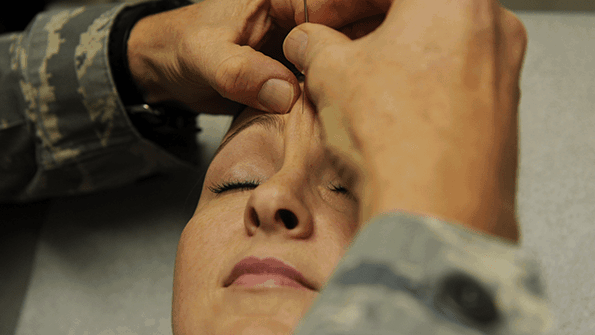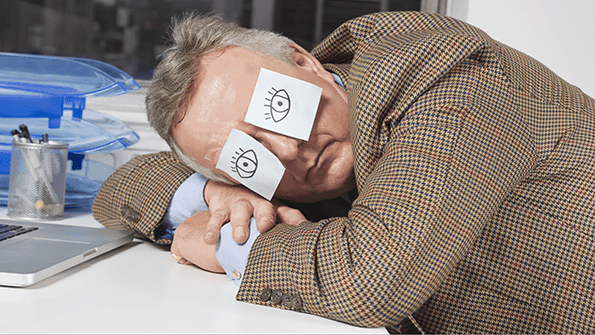We all know how ridiculous and comic snoring may sound. However, we shouldn’t label it as a “just for fun” topic. As a matter of fact, snoring can have serious effects on your sleeping patterns and overall health. In fact, snoring should be considered a condition that needs proper treatment.
It can lead to reduced oxygen intake, sleep apnea, and a weaker immune system. Basically, the loud noise coming through our noses could put our health in jeopardy. That’s why we need to learn how to deal with it properly.
There are plenty of tricks that might help as temporary solutions. For instance, using nose strips has proven to be very efficient. However, finding a long-term snoring remedy is a problem. In this article, we will cover everything you need to know about using acupuncture for snoring.
Acupuncture is a traditional Chinese technique of pricking pressure points in our bodies with needles. As scary as it sounds, it’s actually quite the opposite. Acupuncture is a great remedy for snoring. In addition to that, it has proven to be extremely effective in treating other cases of body pains and injuries.
As we’ve mentioned earlier, the process of acupuncture for snoring may look painful. However, that’s not the case. In fact, some even say that it is a rather pleasant experience. It all comes down to speeding up the natural healing processes in the body by stimulating particular parts, known as the “acupoints.”
The stimulation is achieved with long, sterile needles. There are some practitioners that even apply heat or pressure, with the aim of increasing the level of acupoint stimulation.
In snoring, the area that needs stimulation, or the acupoint, is the sinus. One of the main causes that lead to breathing issues is having inflamed sinuses. The condition actually acts as a blockage in the nasal cavity.
In this case, the acupuncturist would determine the acupoints, which will speed up the healing process of impacted sinuses. As a result, you’ll be able to sleep without snoring throughout the night.
These acupoints will vary, but these are some of the common ones associated with sleep disorders:
GV24.5 – Often referred to as the Third Eye Point, located just between the eyebrows.
P6 – Known as Nei Guan, it is commonly used to treat nausea and motion sickness. These are often issues for people who can’t sleep.
B38 – Commonly known as Vital Diaphragm, helps with balancing mood and emotions.
B10 – Known as Bladder 10, helps with being overtired and insomnia.
H7 – Also called Heart 7 or Shenmen, helps with calming.
GV16 – Governing Vessel 16 helps with mental stressors.
GB20 – Gall Bladder 20 is again used for mental fatigue and headaches.
CV17 – Conception Vessel 17 is located in the chest for dealing with chest congestion and nerves.
K6 – Kidney 6 helps with hypertension and anxiety.
B62 – Urinary Bladder 62 helps with calming.
*These all may vary based on what a licensed practitioner determines, but they are acupoints you may expect to see applied during an acupuncture session.

In general, the first thing an acupuncturist would do is a short physical check-up. Then, they would most likely ask a couple of questions related to your sleeping habits. Based on the answers you give them, they would be able to figure out the right treatment plan.
Once the plan has been created, that’s when the needles step in. The acupuncturist would start administering needles in different parts of your body. Typically, one acupuncture session lasts no more than thirty minutes. In general, it takes a couple of treatments to completely get rid of snoring.
According to research, not only does acupuncture treat snoring, but it also significantly reduces sleep apnea. In fact, there is evidence that the hypopnea and sleep apnea index can be lowered from 13.1 to 0.5, thanks to a 10-week acupuncture treatment program.
In addition to that, acupuncture can significantly affect and improve sleeping patterns, with a particular focus on REM sleep.
Moreover, professionals have even noted that treating precise acupoints may lead to a reduced amount of nasal mucus. If you appear to be coming down with the flu, chances are you’re going to have a greater amount of mucus in your nose than usual. A larger amount of mucus may even lead to a bigger issue — sinusitis. Essentially, submitting yourself to a couple of acupuncture treatments may speed up your recovery.
Here’s another thing we need to cover — possible risks that might come along with acupuncture. However, we’d like to note that having a licensed acupuncturist is a must. That way, the chances of complications are significantly reduced.
The possible risks and complications are:
1. Bleeding or bruising — Upon pulling the needle out, there might be slight bruising or bleeding. In addition to that, the punctured area will most likely feel sore for some time.
2. Puncturing internal organs — If the acupuncturist pushes the needle too deep, there’s a chance of puncturing and damaging the internal organs.
3. Serious infections — Needles that aren’t sterilized properly can lead to numerous complications.

It may seem strange, but not everyone is a good candidate for an anti-snoring acupuncture treatment. There’s a number of conditions that might just worsen the snoring and lead to higher complications.
If you have any of the following conditions, you shouldn’t consider trying acupuncture:
1. Bleeding issues — Those who suffer from blood-related disorders, or are taking some blood-thinning drugs, aren’t suitable candidates for acupuncture.
2. Pacemaker — There are some acupuncturists that apply electric pulses in their treatments. The electric current may affect pacemakers. Hence, people who have a pacemaker should consult their doctor before trying forms of acupuncture.
3. Pregnancy — Acupuncture might lead to premature delivery.

Snoringsource.com is a participant in the Amazon Services LLC Associates Program, an affiliate advertising program designed to provide a means for website owners to earn advertising fees by advertising and linking to amazon(.com, .co.uk, .ca etc) and any other website that may be affiliated with Amazon Service LLC Associates Program.